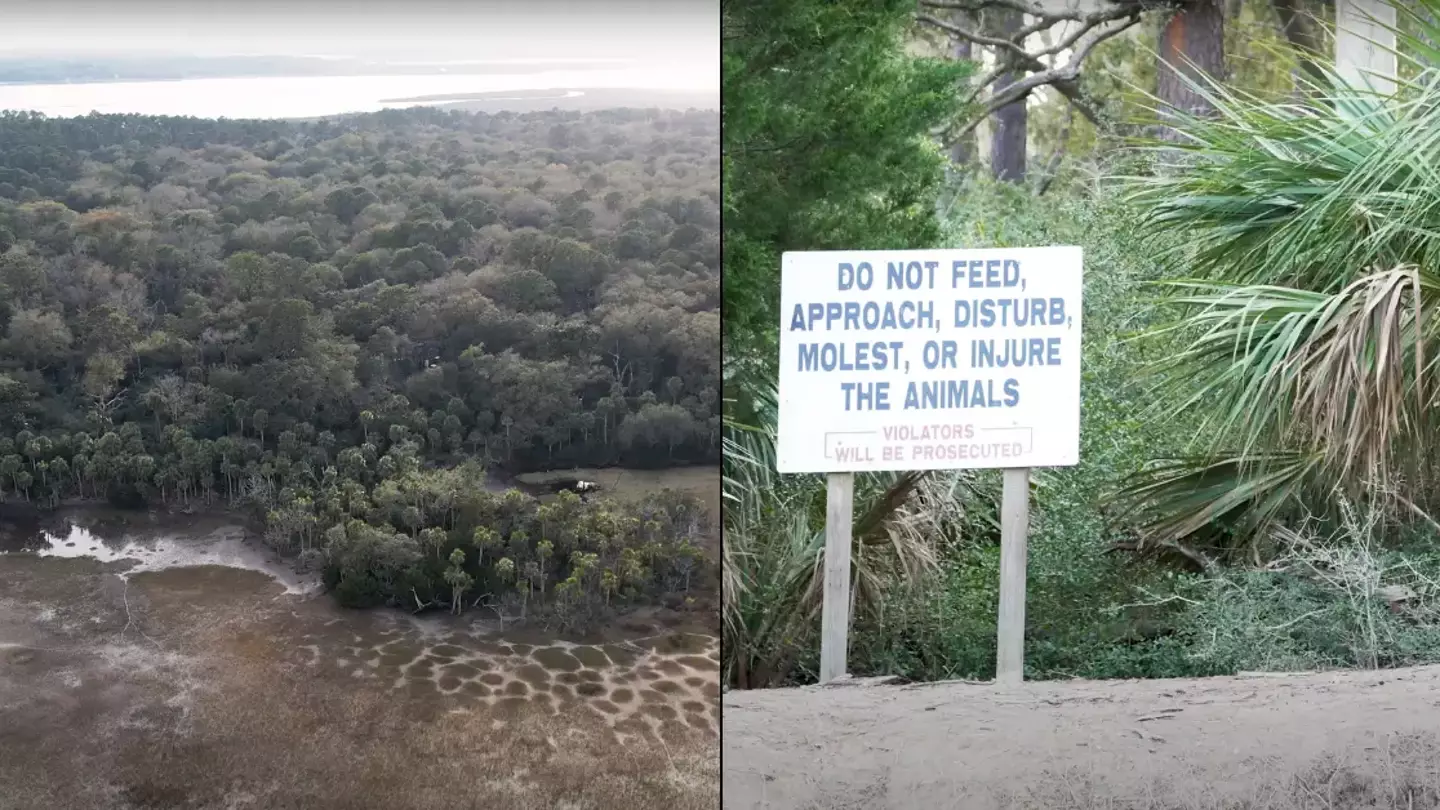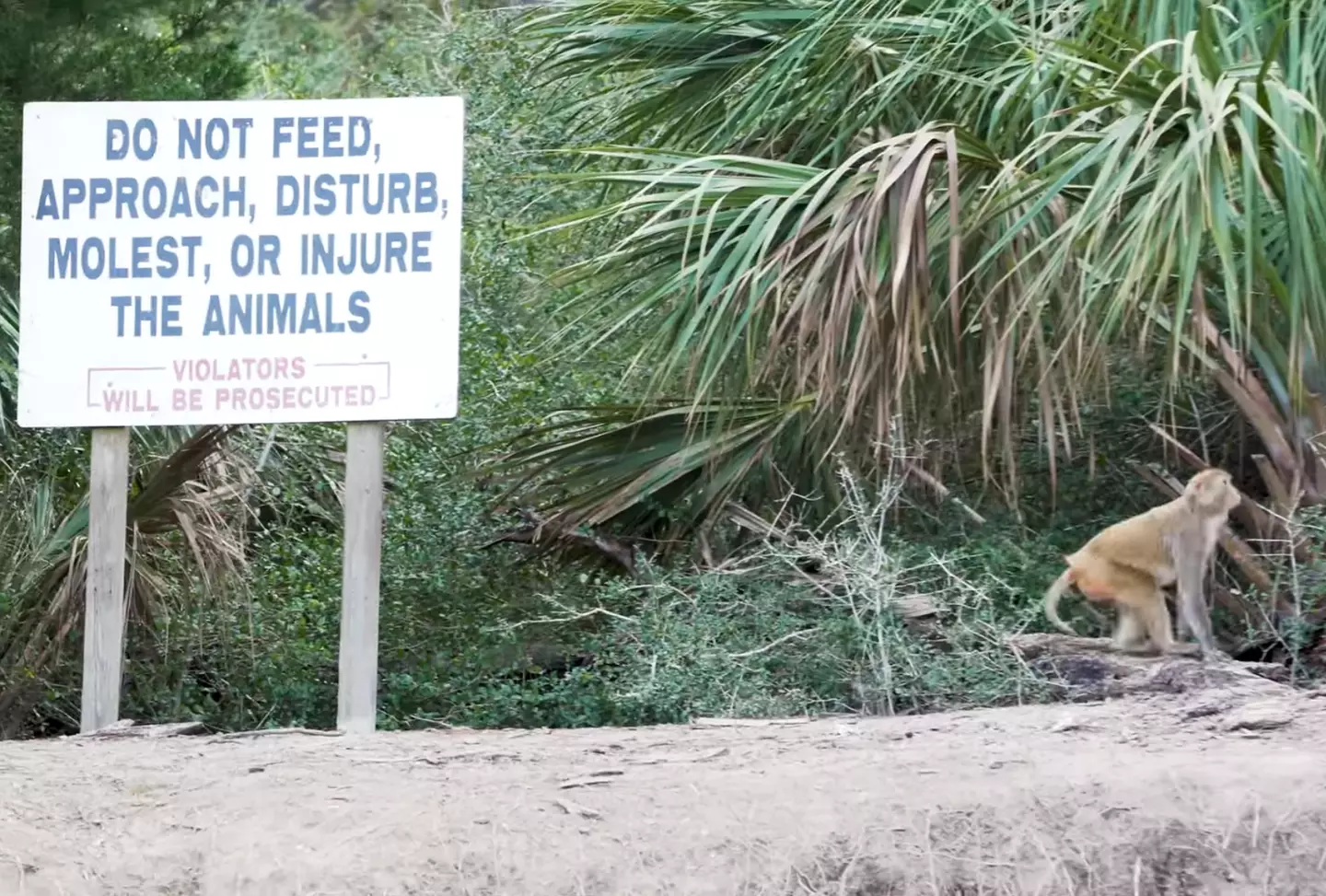
Should you ever find yourself on the South Carolina coastline you might come across a tiny island just off the mainland which you are very definitely not allowed to go to.
This place is called Morgan Island and it's a small bit of land where nobody lives, but thousands of creatures would call it home if they could speak.
Should you sail up to the island's shores you'll notice that the trees extend all the way to the water and there'll be signs warning you to stay the hell away
"Do not feed, approach, disturb, molest, or injure the animals," it'll warn you, before saying that 'violators will be prosecuted'.
Advert
Alright, message received, stay away from Morgan Island, but why?

While nobody lives on the island it's home to a breeding colony of around 4,000 rhesus monkeys, also known as rhesus macaques.
The colony of monkeys were originally situated in a location on Puerto Rico, but the animals kept escaping and spreading herpes B infections wherever they went.
With Puerto Rico wanting rid of the monkeys, South Carolina offered the uninhabited Morgan Island as a new haven for these monkeys and they were moved across in 1979 and 1980.
The only people permitted to set foot on this island are researchers who've been granted official approval to travel there and study the residents, with the monkeys living there technically being owned by the National Institute of Allergy and Infectious Diseases.
They're used for biomedical research, with up to hundreds of monkeys being taken from the island each year, but safeguards are in place to try and stop them from breaking out and causing new outbreaks of herpes.
.jpg)
This whole thing isn't without risk, as last month a group of 43 monkeys escaped from a research facility in South Carolina and weeks later some of them were still missing.
The group made a break for it on 6 November after their enclosure was not properly locked and while most were quickly recaptured it took a while for some of the other errant primates took longer to track down.
So you'd best stay away from the colony of monkeys lest you mess up the efforts of researchers and potentially even catch something nasty.
If 28 Days Later has taught us anything, it's that you really shouldn't mess with research monkeys because you never know what you might catch from them.